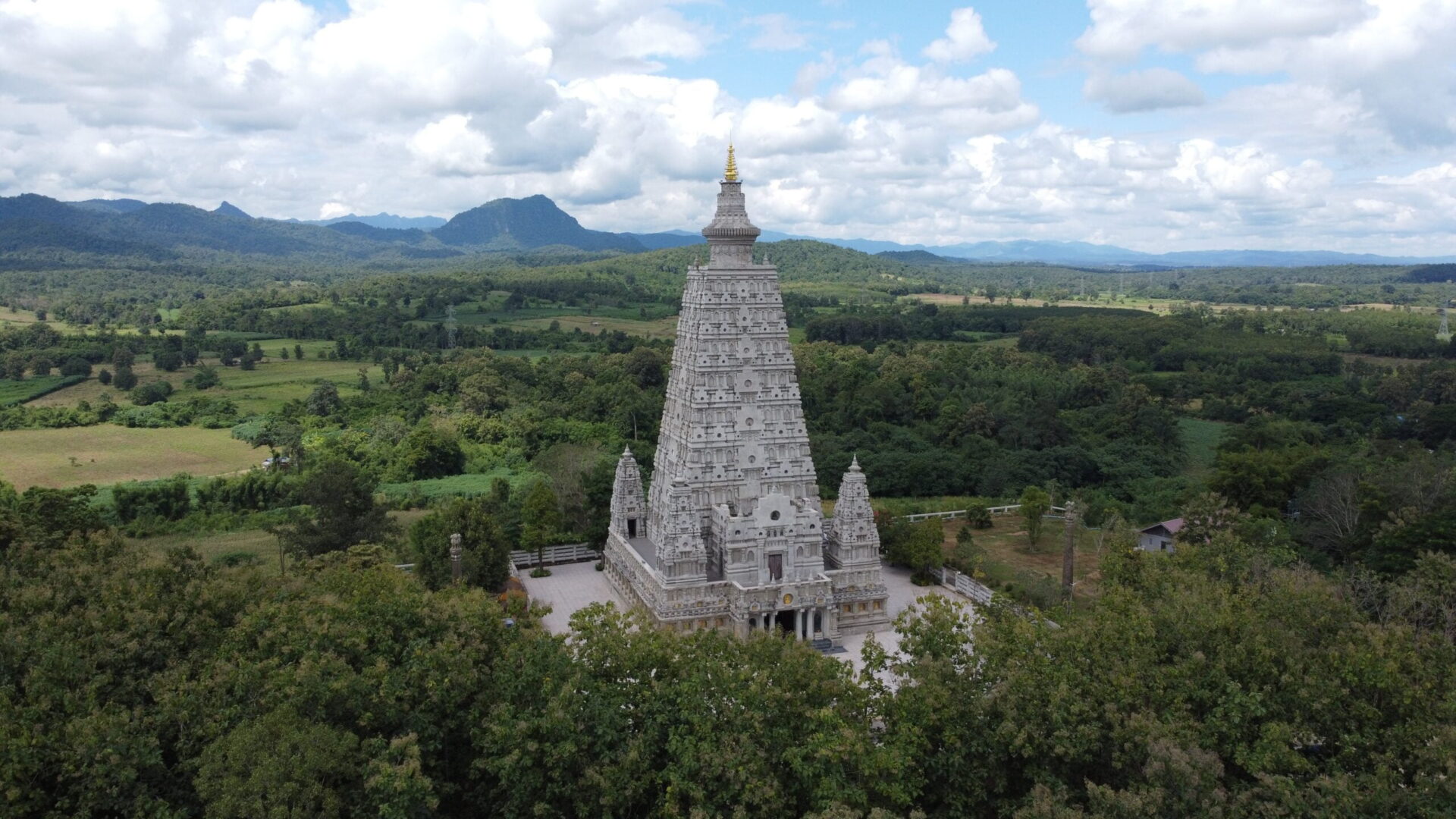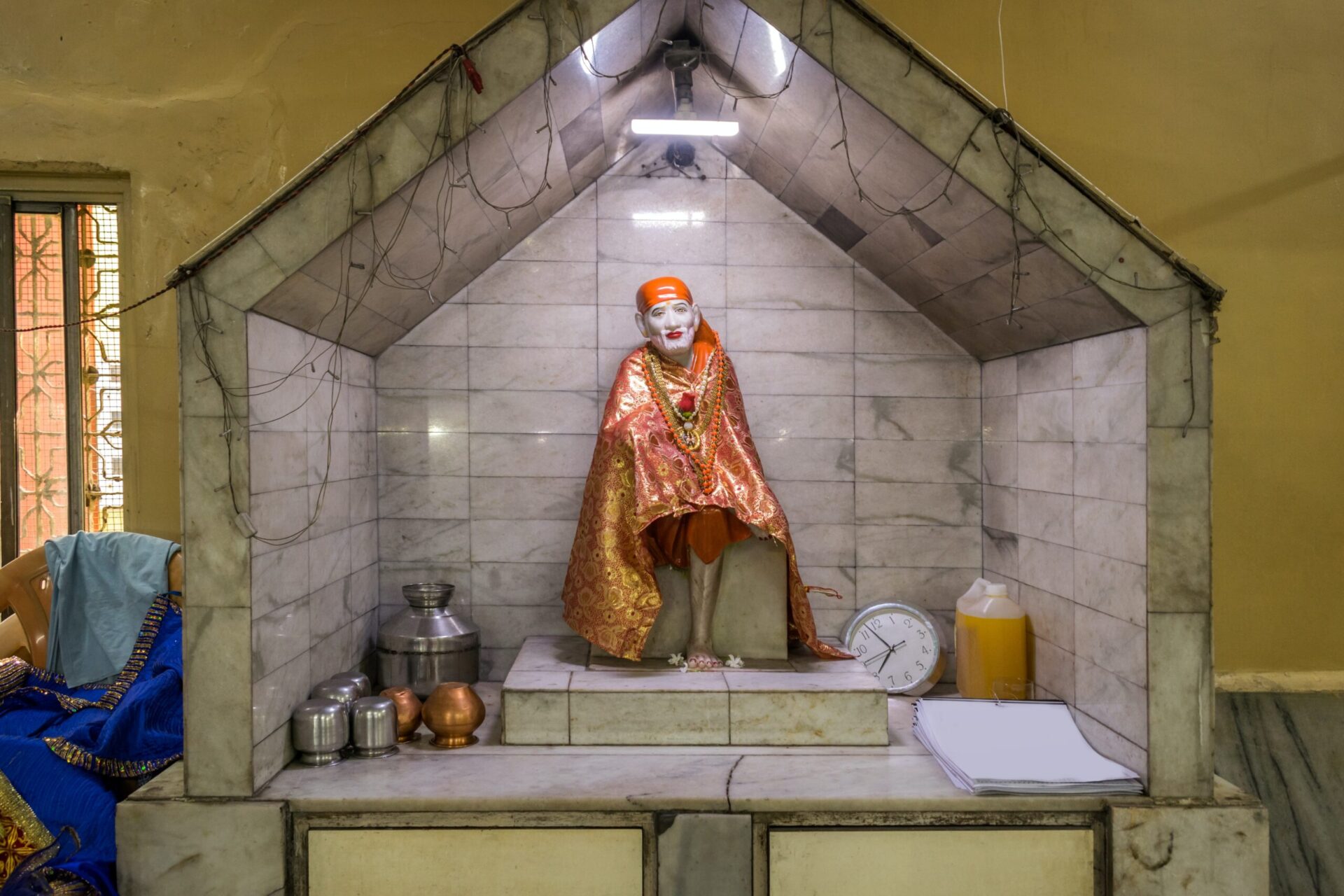In this article, you will discover the three main beliefs of Hinduism. Exploring the essence of this ancient religion, you will uncover the fundamental principles that guide the spiritual lives of millions. From the concepts of Dharma, Karma, and Moksha, to the intricate tapestry of gods and goddesses, Hinduism offers a fascinating worldview that has captivated minds for centuries. Let’s embark on this journey together and unravel the mysteries of one of the world’s oldest and most diverse religions.

Table of Contents
Understanding the Foundations of Hinduism
Hinduism, one of the oldest religions in the world, is rich in philosophical, spiritual, and cultural traditions. To truly appreciate and understand this ancient religion, it is important to explore its foundational elements. In this comprehensive article, we will delve into the historical background of Hinduism, the belief in a Supreme Being, the concept of karma, the significance of dharma, the Hindu scriptures, rituals and practices, the concept of the soul, Hindu ethics and morality, variations in beliefs, and the role of Hinduism in the modern age.
Historical background of Hinduism
Dating back over 4,000 years, Hinduism originated in the Indus Valley civilization in present-day India and Pakistan. It is a complex and diverse religion, evolving over centuries through various influences and interactions with different cultures. Hinduism does not have a single founder or a standardized set of beliefs, but rather embraces a multitude of gods, goddesses, rituals, and philosophies.
Concept of Dharma in Hinduism
One of the fundamental principles of Hinduism is the concept of dharma. Dharma can be understood as one’s duty or righteous path that is in accordance with natural and cosmic order. It encompasses moral and ethical responsibilities, both individual and societal. Hindus believe that by following their dharma, they contribute to the harmony and balance of the universe.
Role of Vedic teachings
The Vedic teachings form the foundation of Hinduism. The Vedas, considered sacred and ancient texts, contain hymns, rituals, and philosophical insights. These texts were composed by seers and sages who sought to understand the mysteries of existence and the nature of divinity. The Vedic teachings have influenced various aspects of Hinduism, including rituals, prayers, and the concept of the soul.
Belief in a Supreme Being
Hinduism believes in the existence of a Supreme Being, referred to as Brahman. The concept of Brahman is complex and transcendent, beyond human comprehension. Brahman is considered the ultimate reality, the source of all creation, and the essence of all existence. Hindus understand that this supreme power manifests its presence in different forms and deities.
Depiction and understanding of God in Hinduism
In Hinduism, God is perceived as both personal and impersonal. The personal aspect includes various deities who represent different aspects of the divine, such as Lord Vishnu, Lord Shiva, and Goddess Lakshmi. The impersonal aspect emphasizes the formless and all-pervading nature of God. This plurality of understanding allows individuals to connect with the divine in a way that resonates with their personal beliefs and practices.
Individual aspects of God
The Hindu pantheon consists of numerous gods and goddesses, each with specific attributes and roles. For example, Brahma, the creator, is associated with the creation and maintenance of the universe. Vishnu, the preserver, is responsible for maintaining cosmic order and balance. Shiva, the destroyer, signifies transformation and renewal. The multitude of gods and goddesses represents different aspects of life, reflecting the diverse experiences and aspirations of humanity.
Understanding the trinity: Brahma, Vishnu, and Shiva
The trinity of Brahma, Vishnu, and Shiva is a significant concept in Hinduism. Brahma is the creator, Vishnu is the preserver, and Shiva is the destroyer. Together, they represent the cyclical nature of existence—creation, preservation, and transformation. This trinity symbolizes the perpetual cycle of birth, life, death, and rebirth, mirroring the eternal process of the universe.
Belief in Karma
Karma is a central belief in Hinduism that governs the consequences of an individual’s actions. According to Hindu philosophy, every action, both good and bad, has corresponding consequences. Karma operates on the principle of cause and effect, implying that one’s actions in the present life will shape their future existences. Hindus believe that the quality of one’s actions determines their path in the cycle of life, death, and rebirth.
Underlying principles of Karma
Karma is founded on the concept of moral responsibility and accountability. It emphasizes the importance of leading a righteous and ethical life. Hindus believe that the accumulation of positive karma leads to a better future existence, while negative karma leads to suffering and challenges. The law of karma seeks to guide individuals towards a life of compassion, selflessness, and virtuous behavior.
How actions affect future existences
Hindus believe in the cycle of life, death, and reincarnation, known as samsara. Your actions in the present life determine your future existence, whether in human form or as another living being. Reincarnation provides opportunities for growth, learning, and spiritual evolution. It is believed that individuals will continue to be reborn until they attain liberation from the cycle, known as moksha.
The cycle of life, death, and reincarnation
In Hinduism, life is viewed as a continuous journey, encompassing various incarnations. Death is not seen as an end but rather a transition to a different existence. The cycle of life, death, and reincarnation reflects the soul’s quest for spiritual enlightenment and liberation from the cycle of samsara. Hindus strive to live a life that aligns with their dharma to ultimately break free from this perpetual cycle.
The ultimate goal of liberation (Moksha) from the cycle
Moksha, the ultimate goal in Hinduism, signifies liberation from the cycle of samsara and the unity with the divine. It represents the end of suffering and the attainment of eternal bliss. Achieving moksha is a deeply personal and spiritual journey where individuals transcend the confines of their physical existence and merge with the divine. Hindus believe that moksha brings an end to the cycle of birth and death, offering eternal peace and spiritual fulfillment.
Belief in Dharma
Dharma is a core concept in Hinduism that encompasses moral, ethical, and societal responsibilities. It focuses on an individual’s duty and righteousness in the context of their roles and relationships in society. Dharma is based on the belief that a harmonious society depends on each individual fulfilling their prescribed duties and obligations.
Definition of Dharma
Dharma can be understood as a moral compass that guides individuals towards righteousness and ethical conduct. It encompasses various aspects, including personal duties, social responsibilities, and adherence to moral principles. Dharma varies for different individuals based on their age, gender, occupation, and social status. By following dharma, one contributes to the overall wellbeing of society and upholds the cosmic order.
Ritualistic practices under Dharma
Rituals and practices play a significant role in Hinduism, serving as a means to connect with the divine and express devotion. Under the framework of dharma, rituals are performed to honor gods and goddesses, seek divine blessings, and maintain spiritual discipline. These rituals often involve prayers, offerings, and ceremonies performed at home or in temples. Rituals serve as a conduit for spiritual growth and reinforce the individual’s commitment to their dharma.
Interplay of Dharma with other beliefs like Karma
Dharma and karma are interwoven concepts in Hinduism. While dharma guides individuals towards righteous actions, karma determines the consequences of those actions. The ethical principles of dharma influence the quality of one’s karma. By upholding their dharma, individuals increase the likelihood of accumulating positive karma, thus shaping their future existences. The interconnectedness of dharma and karma reinforces the importance of leading a life of moral integrity.
Dharma as duty and societal responsibilities
Dharma extends beyond individual responsibilities and encompasses societal duties as well. It emphasizes the importance of maintaining social harmony, upholding justice, and promoting the welfare of all. Individuals are expected to fulfill their obligations towards their families, communities, and society as a whole. By embracing their societal responsibilities, Hindus strive to create a just and compassionate world.

Understanding Hindu Scriptures
Hindu scriptures play a vital role in the propagation of beliefs, practices, and philosophical insights within the Hindu community. These sacred texts provide guidance, wisdom, and spiritual teachings that shape the religious and cultural fabric of Hinduism.
Role of scriptures in propagation of Hinduism beliefs
The scriptures are regarded as authoritative sources of knowledge and spiritual guidance. They serve as reservoirs of ancient wisdom, encompassing a vast array of philosophical ideas, moral codes, and ritualistic practices. The scriptures also provide a historical record of cultural and societal practices, offering insight into the evolution of Hinduism over time.
The Vedas and Upanishads
The Vedas, the oldest of the Hindu scriptures, form the foundation of Hindu religious and philosophical thought. They are a collection of hymns, prayers, and rituals composed by ancient sages. The Upanishads, a part of the Vedas, delve into metaphysical concepts and profound philosophical insights. They explore the nature of reality, the self, and the divine, providing a deeper understanding of the spiritual aspects of Hinduism.
The Bhagavad Gita and Mahabharata
The Bhagavad Gita, a sacred text within the epic Mahabharata, is a philosophical and ethical discourse between Lord Krishna and the warrior Arjuna. It explores concepts of duty, righteousness, and the nature of the self. The Mahabharata, one of the longest epic poems in the world, contains various narratives, including the story of the great Kurukshetra war. These scriptures continue to be revered and studied by Hindus worldwide, offering valuable insights into the complexities of life and spirituality.
Rituals and Practices
Rituals are an integral part of Hinduism and are performed to express devotion, seek blessings, and connect with the divine. They symbolize the reverence and gratitude felt towards gods, goddesses, ancestors, and nature.
Importance of rituals in Hinduism
Rituals serve as a means of spiritual communication and expression of devotion. They provide structure and discipline to religious practices, enabling individuals to establish a personal connection with the divine. Rituals also foster a sense of community and belonging, as they are often performed collectively during festivals and ceremonies.
Common Hindu rituals like Puja
Puja, a ritual offering to a deity, is one of the most common and widely practiced rituals in Hinduism. It involves the use of various symbolic items, such as flowers, incense, and lamps, along with prayers and chants. Puja can be performed at home or in temples and is often personalized to reflect individual beliefs and preferences. The act of performing puja is a way of expressing reverence, gratitude, and seeking blessings from the divine.
Significance of holy places and pilgrimages
Hinduism attaches great significance to holy places and the act of pilgrimage. India, the birthplace of Hinduism, is replete with sacred sites such as Varanasi, Rishikesh, and Haridwar. Pilgrimages to these locations and others across the country are believed to offer spiritual purification, blessings, and insights into one’s dharma. Holy rivers, mountains, and temples are considered as dwelling places of the divine, creating a deep spiritual connection with devotees.
Festivals and their relation to Hindu beliefs
Festivals play a pivotal role in Hindu culture, celebrating various aspects of the religion, history, and nature. They serve as occasions of communal harmony, joy, and spiritual reflection. Hindu festivals are often associated with specific deities, legends, and seasonal changes. They provide opportunities for collective worship, reflection, and cultural preservation, strengthening the bond within the community and reinforcing religious beliefs.

Hinduism and the Concept of the Soul
Hinduism places great emphasis on the concept of the soul, which is believed to be eternal and divine. Understanding the nature of the soul and its journey is integral to comprehending the Hindu worldview.
Understanding the Hindu view of the soul
Hinduism views the soul, known as Atman, as an immortal essence that exists within every living being. The soul is considered divine and indistinguishable from the ultimate reality, Brahman. It is believed that each individual’s soul carries the accumulated karma from previous existences, influencing their current life and shaping their future paths.
The journey of the soul
The journey of the soul involves a continuous cycle of birth, life, death, and rebirth. It seeks to evolve and attain moksha, liberation from the cycle of samsara. Through each incarnation, the soul learns and grows, gaining spiritual insights and moving closer to realizing its divine nature. The journey of the soul is a deeply personal and transformative process, unique to each individual.
Reincarnation – the cycle of Samsara
Reincarnation, a fundamental belief in Hinduism, is the process of the soul being reborn in a new body after death. This cycle of samsara continues until an individual achieves moksha. Reincarnation offers opportunities for spiritual growth, self-realization, and the resolution of karmic debts. The law of karma plays a crucial role in determining the nature of an individual’s rebirth and the circumstances they will encounter in their subsequent lives.
Hindu Ethics and Morality
Hindu ethics and morality are rooted in the teachings of dharma and the principles of karma. The religious and philosophical framework of Hinduism provides guidelines for leading a virtuous and ethical life.
The ethical code in Hinduism
Hindu ethics are centered around principles of righteousness, compassion, and ethical conduct. The concept of ahimsa (non-violence) serves as a foundational principle, emphasizing the importance of respect for all living beings. Other moral principles, such as satya (truth), asteya (non-stealing), and daya (compassion), guide individuals towards a life of integrity and empathy.
Inter-relation between Karma, Dharma, and Ethics
Karma, dharma, and ethics are inherently interconnected in Hinduism. Ethical behavior and adherence to moral principles are seen as a manifestation of dharma. By practicing ethical conduct, individuals accumulate positive karma, leading to a more favorable future existence. Conversely, unethical actions contribute to negative karma and perpetuate the cycle of samsara. Hinduism encourages individuals to align their thoughts, words, and actions with their dharma, cultivating a moral framework and fostering spiritual growth.
Role of virtues in Hindu beliefs
Virtues play a crucial role in Hindu beliefs and are considered essential qualities for spiritual evolution. Virtues such as love, compassion, forgiveness, and humility are seen as expressions of divine qualities. By cultivating virtues, individuals enhance their spiritual growth, deepen their connection with the divine, and contribute positively to the world around them. Hinduism encourages the development of virtuous qualities as a means to attain moksha and live a life of fulfillment.
Variations in Hindu Beliefs
Hinduism is a diverse religion with various sects and regional variations. This diversity is influenced by historical periods, geographical locations, cultural practices, and interactions with other religions.
Different sects in Hinduism
Hinduism encompasses various sects, each with its distinct beliefs and practices. Some of the well-known sects include Vaishnavism, Shaivism, and Shaktism. Vaishnavism focuses on the worship of Lord Vishnu and his incarnations, Shaivism centers around the worship of Lord Shiva, and Shaktism reveres the divine feminine energy, primarily Goddess Durga or Kali. These sects highlight different aspects of the divine and offer diverse paths to spiritual realization.
Regional variations and local customs
Throughout India and Hindu diaspora communities, regional variations and local customs add further depth to Hindu beliefs and practices. Different regions have their unique rituals, deities, and cultural expressions, resulting in a tapestry of diverse traditions. For example, festivals like Diwali, Navaratri, and Pongal have regional variations that reflect the local customs and folklore. These regional variations contribute to the richness and vibrancy of Hinduism, celebrating the multicultural fabric of India.
Influence of historical periods on Hindu beliefs
Hindu beliefs have evolved over time, influenced by historical periods and interactions with other religions and cultures. Dynasties, invasions, and the exchange of ideas have shaped the religious landscape. Hinduism has absorbed and assimilated various elements from Buddhism, Jainism, and Islam, leading to the emergence of new theological and philosophical developments. The historical context has contributed to the flexibility and adaptability of Hinduism, making it a living and evolving religion.
Hinduism in the Modern Age
Hinduism has successfully adapted and thrived in the modern age, continuing to be an influential and widespread religion globally.
Adaptation to contemporary society
Hinduism has adapted to the changing societal dynamics, addressing the needs and aspirations of individuals in the modern age. It has embraced technological advancements, allowing for virtual temple visits, online spiritual resources, and digital dissemination of knowledge. Hindu organizations and communities have found innovative ways to engage with younger generations while preserving the core teachings and rituals.
Challenges and transformations
The modern age has presented unique challenges and transformations for Hinduism. Globalization, secularism, and the influence of Western ideologies have posed challenges to traditional values and practices. However, these challenges have also led to a reinvigoration of dialogue and introspection within the Hindu community, promoting a deeper understanding of their faith and fostering a stronger sense of identity.
The global influence and spread of Hinduism principles
In recent years, Hinduism has gained global recognition and followership. Its inclusive and spiritual principles have captivated people from diverse backgrounds, seeking meaning, and spirituality. The teachings of yoga, meditation, and mindfulness, rooted in Hindu philosophy, have found widespread acceptance and become integral parts of the global wellness movement. Hinduism’s pluralistic and all-encompassing nature continues to resonate with individuals seeking spiritual solace and enlightenment.
In conclusion, Hinduism encompasses a vast and comprehensive tapestry of beliefs, practices, and traditions. From its historical origins to its philosophical underpinnings, the Hindu faith emphasizes the significance of dharma, karma, scriptures, rituals, the soul, ethics, variations in beliefs, and the role of Hinduism in the modern age. Understanding these foundations is crucial to truly appreciate and grasp the timeless wisdom and spirituality that Hinduism offers.